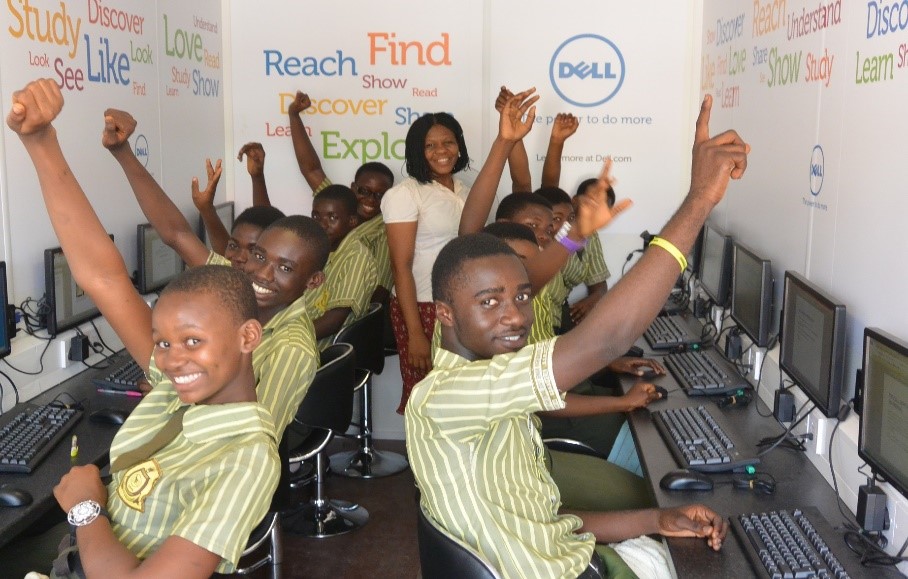Context: Youth unemployment has been identified as a root cause of the civil war in Sierra Leone. Thus, the cadre of young men and women currently looking for employment (UNDP estimates that they number about 800,000) represent a potential political and security risk if they are unable to find productive work to occupy them and to give them a hoped-for future.
With jobs scarce and young people lacking relevant skills to take advantage of the few opportunities that do exist in the job market, the Queen’s Young Leaders Project aims to help young people to both gain employable skills and the ability to set up their own businesses.
Implementation of Intervention: The Queen’s Young Leaders Project is a three-year project that seeks to identify, support and strengthen the capacity of 1,230 young people in entrepreneurship and leadership skills in the capital of Sierra Leone, Freetown, and two other districts in the northern and southern regions of the country. It aims to reach a diverse group of youth between the ages of 18 and 35 years, including those who are socially disadvantaged such as females, persons with disabilities, and commercial sex workers. It is funded by the British charity, Comic Relief.
The project is run by YMCA-Sierra Leone. YMCA is a youth-focused and youth-serving organization working for and on behalf of youth with the vision to empower young people to be productive citizens.
The project has three components: training in leadership and governance, provision of ICT training and services, and training and start-up for livelihood activities.
The project has the following innovative features:
- The installation of two ZubaBoxes–solar-powered shipping containers equipped with computers and other technologies. The containers are sites for on-going mentoring, coaching and training in business development and ICT. The Zubaboxes are also accessible to the public, particularly teachers, bankers, social workers and journalists, to carry out work and research.
- The introduction of an internet mobile (telephone) engagement service to provide distance training and mobile service to other 600 young people in offline communities.
- Training to help young people through the process of coming up with a business idea and translating it into reality. In addition, competitions will be help for the best business ideas, with prizes awarded.
- A ‘psychosocial’ aspect where young people receive both personal and career counselling.
YMCA has three international implementation partners (Y Care international, Computer Aid International and On Our Raider), one local (Sensi Tech Innovations Hub) and two sub-contractors (Call to Business and Global Youth Network for Empowerment and Development).
Main Challenges: Acquiring land on which to install the ZubaBoxes in two districts for the project was a challenge. YMCA presented the project key community members and local government officials and requested their buy-in. After this, a formal request was made for the lands.
Another hurdle was the lack of community knowledge of the use of the ZubaBoxes. During community engagement programmes, special sessions were conducted to improve community knowledge on the relevance and use of the facility.
The project is at its beginning stage but is expected to achieve the following results:
- Young people will receive business training in various areas, including on how marketing, social media, and accounting. This is expected to enhance their employability in the labour market as well as their ability to create their own businesses.
- Young people will be trained to stimulate and test business ideas. The expectation is that this will foster resilience, innovation and leadership skills in young people, which will permeate their communities.
Moving Forward: The project will partner with internet providers to give free internet as part of their corporate social responsibility. The expansion of internet services opens up possibilities for e-health, e-commerce, and other commercial activities and social services. Additionally, the project will strengthen collaboration between the private sector and youth-led small-scale businesses by involving companies in the training, mentoring and hiring participants.
Replicability: While the Queen’s Leaders Project is being run in a post-conflict setting, its essential features—providing leadership and entrepreneurship training—can be translated to other African countries.
Secondly, the ZubaBoxes—which are essentially retrofitted shipping containers that run on solar power —are less costly to install and maintain than bricks-and-mortar facilities, and can be put up even in rural areas without electricity (Kafyeke, 2016).
References
Kafyeke, T. (2016). ZubaBox: A solar powered container brings the internet to rural areas. Available at https://en.reset.org/blog/zubabox-solar-powered-container-brings-internet-rural-areas-04282016
Personal communication, Staff of YMCA-Sierra Leone, 24 February 2017
“Tackling Youth Unemployment in Sierra Leone: Umaru’s Story.” Retrieved from http://www.sl.undp.org/content/sierraleone/en/home/ourwork/povertyreduction/successstories/tackling_youth_unemployment_umaru.html
Project Details
Date: September 8, 2017
